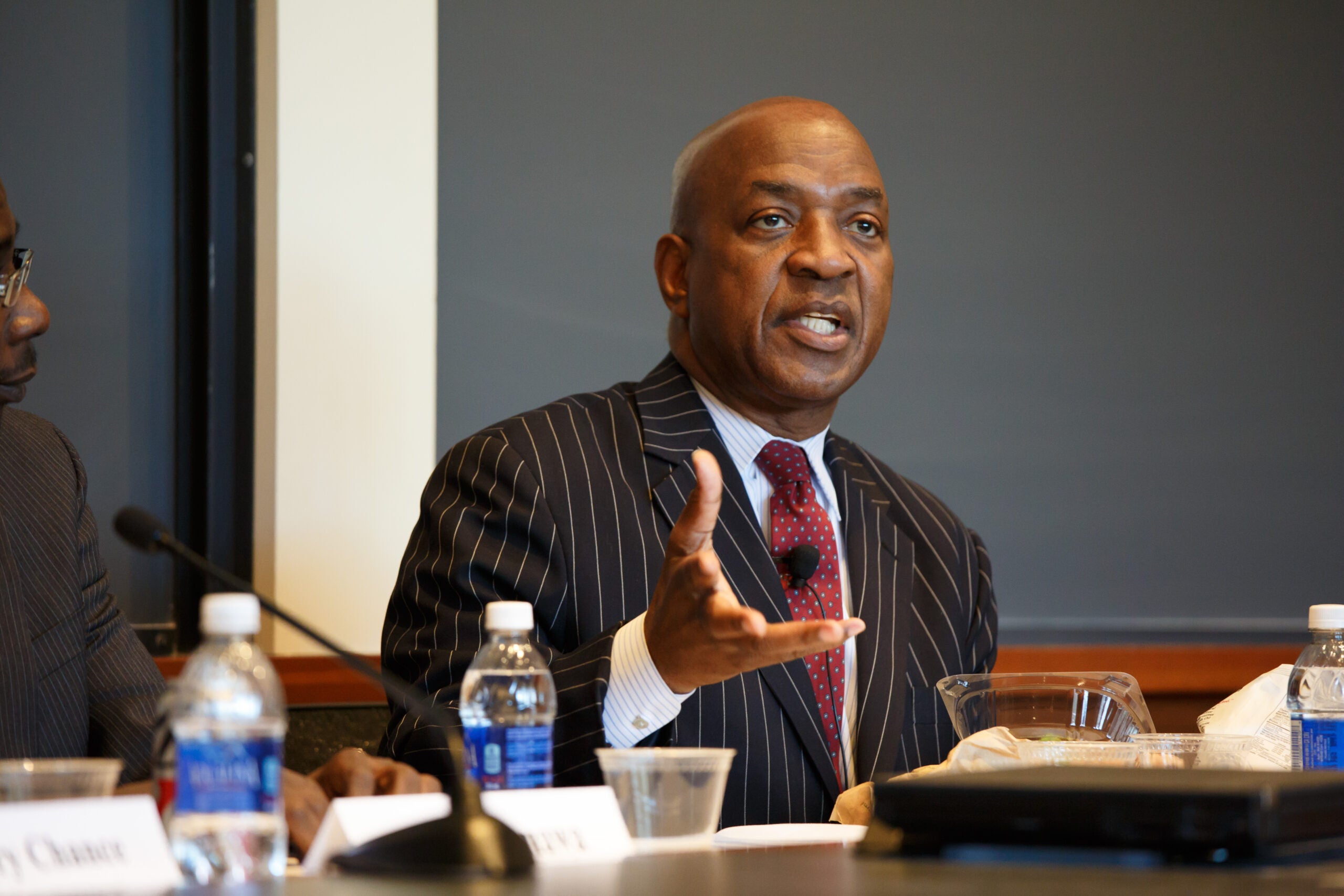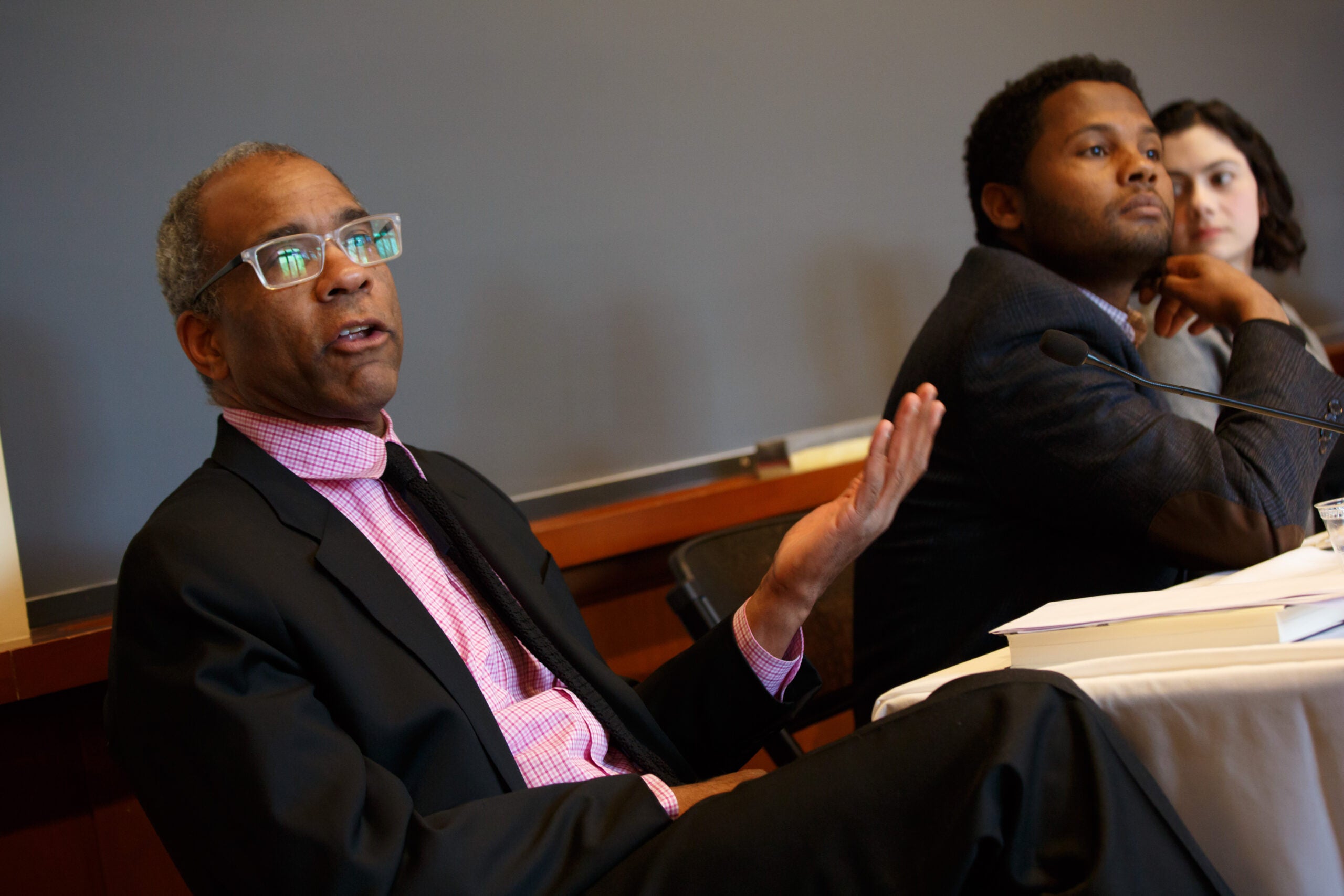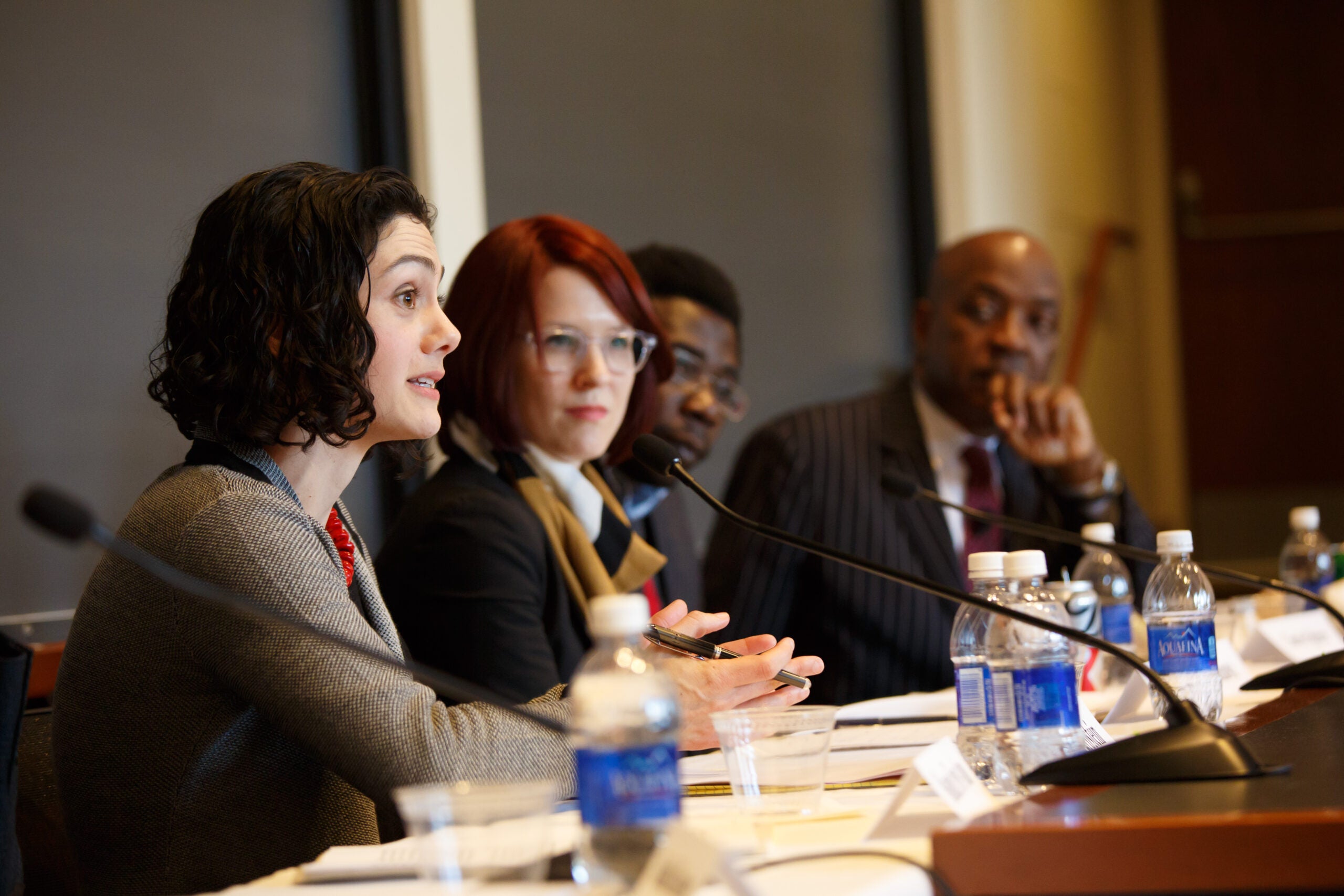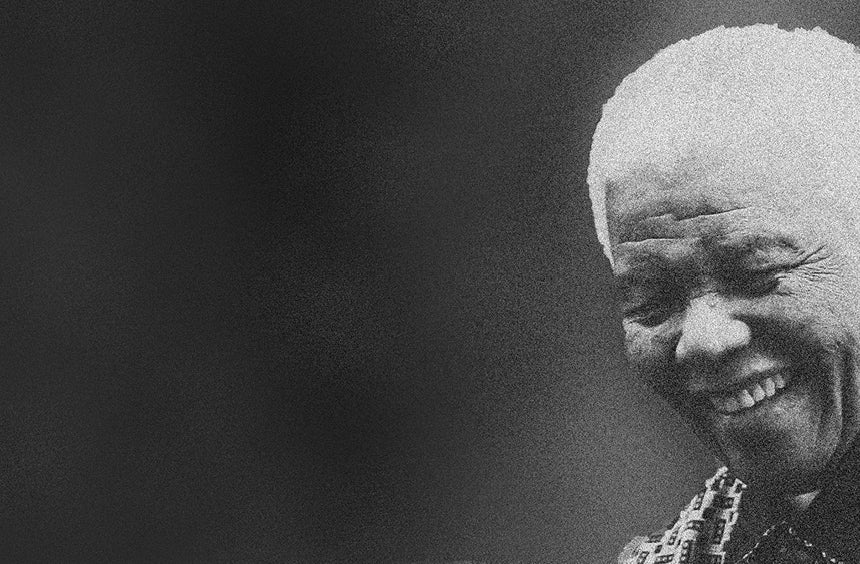A panel of scholars gathered at Harvard Law School March 14 to examine the legacy of Nelson Mandela with a discussion about the use of violence for political or social change.
The panel, chaired by HLS Professor Charles J. Ogletree, Jr. ’78, reflected on the career of Mandela, who died Dec. 5, 2013 at the age of 95, focusing on his positions on the use of violence to overthrow the South African apartheid regime. Although Mandela advocated non-violent resistance to apartheid during his early years in the African National Congress in the late 1940s and early 1950s, his position on violence shifted. In 1960 he became one of the founders of the organization’s armed wing, Umkhonto we Sizwe, which launched sabotage attacks against government facilities. Two years later he imprisoned. He spent 27 years in prison.
Panelists were unanimous in portraying Mandela as a remarkable leader. They also agreed that his positions on the use of violence to achieve desired political or social outcomes are complex and deserving of analysis and that assessing the validity of violence to achieve those outcomes is a difficult task.

“My answer to the question would be that violence is justifiable when one can confidently predict that the violence that one is deploying will eliminate a greater evil, but that’s always a very difficult judgment to make,” said HLS Professor Randall Kennedy. “Because violence is a tainting thing, one always has to consider—even if one thinks one can prevail—what will be the price one pays for doing that?”
While the movement in South Africa was successful in eliminating apartheid, he pointed out, the nation today remains a country with deep problems, “and some of those problems are probably traceable to the mechanisms by which apartheid was overthrown.”
Kerry Chance, American Council of Learned Societies (ACLS) Fellow in the Harvard University Anthropology Department, also noted the lingering challenges in South Africa—continuing poverty, high unemployment, growing unrest—and said they have “raised the question yet again in poor communities of what is meant by violence in relation to social change. But now there’s no common political enemy, no oppressive laws to overturn, and no unified organizational banner under which to imagine a certain future.”

Susan Farbstein ’04, HLS assistant clinical professor and co-director of the International Human Rights Clinic, struck a similar tone. “On the one hand, any means were necessary and justified to end apartheid,” she said. “But on the other hand, I worry seriously about the legacy of all this violence 20 years after apartheid’s end.”
Still, she noted, “We may have to face the reality that sometimes there are governments that are just so cruel, so evil, so unjust, that people may need to resist by force.”
Aminu Gamawa, SJD Candidate, said: “But for every one or two examples you can cite of instances where violence was used to accompany a particular political or social goal, you can cite 50 more examples where violence has produced more evil and more damage than good. That is why I think Mandela’s experience in South Africa is something that is worth studying and worth reflecting upon.”

“I personally believe violence should be avoided,” he said. “I believe that we have more tools that we can use to restructure society politically and socially without resorting to violence. We have seen the damage that violence does to our collective humanity and I think there better options,” said Gamawa.
S.J.D. candidate Mekkonen Firew Ayano agreed, saying, “We know that some of the most durable social and political change comes from nonviolent means.”
But, as Farbstein said, sometimes circumstances may make violence a more attractive alternative for change seekers. “My answer to this question of when violence is justified is based on asking a lot more context-specific questions: Who’s using the violence? What is the political and social change they’re seeking to achieve? How and why was the decision made to opt for violence? What kind of violence is being used? Who’s being targeted? What other options did they rule out? What are the peripheral effects of the violence?”
Gamawa suggested that the study of warranted violence is important because it’s an issue that’s not going away any day soon.
“There is a growing gap between the rich and the poor, at micro and macro levels,” he said. “That is one of the reasons we should be concerned about the issue of violence.”
